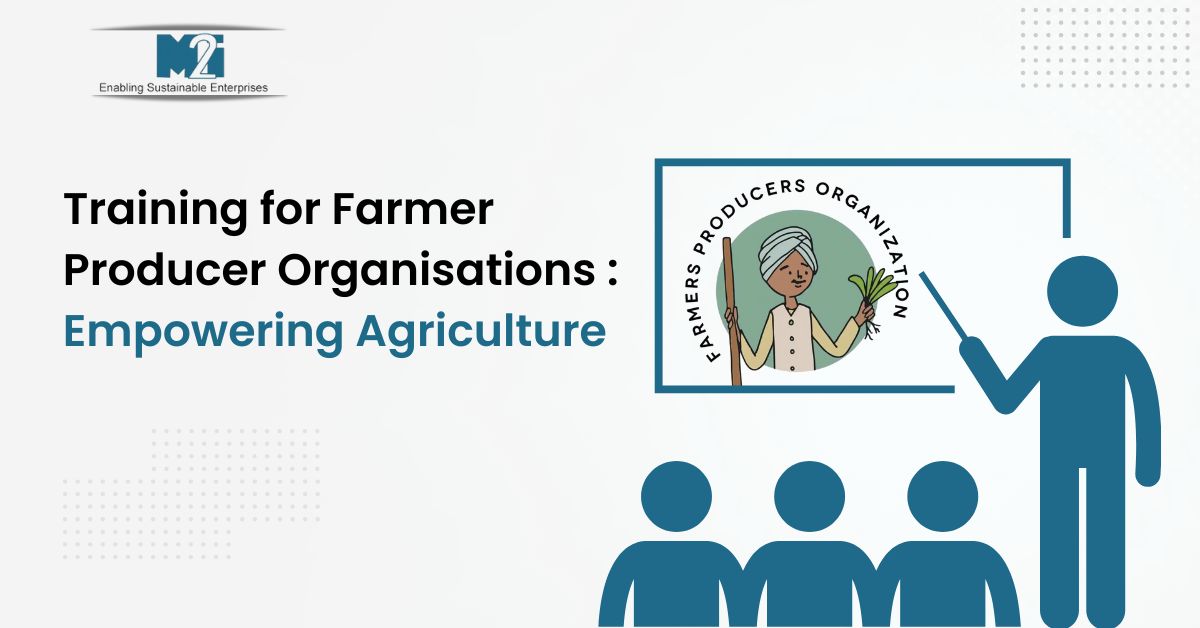
Training for Farmer Producer Organisations : Empowering Agriculture
Training for Farmer Producer Organisations
In the dynamic world of agriculture, empowering farmer producer organizations (FPOs) is vital for sustainable growth. FPOs play a pivotal role in bringing smallholder farmers together, enhancing their collective strength, and improving their socio-economic conditions. However, the success of FPOs hinges on effective training and capacity-building initiatives. In this article, we delve into the critical importance of training for farmer producer organizations.
The Significance of FPOs in Agriculture
Farmer Producer Organizations, commonly known as FPOs, are collaborative entities formed by smallholder farmers to collectively market their produce, access resources, and improve agricultural practices. These organizations empower farmers by providing them with a collective voice in the market, increased bargaining power, and access to better technology and resources. As a result, FPOs contribute significantly to the development of rural economies and the overall growth of the agriculture sector.
The Need for Training
To harness the full potential of FPOs, training and capacity-building programs are indispensable. Here's why training is crucial:
-
Empowering Leadership: Effective FPOs require skilled leadership. Training equips leaders with the knowledge and skills needed to manage organizational affairs, make informed decisions, and engage with stakeholders effectively.
-
Enhancing Agricultural Practices: Training programs help farmers adopt modern and sustainable agricultural practices, leading to increased productivity, reduced post-harvest losses, and improved crop quality.
-
Financial Literacy: Many FPOs engage in financial activities such as savings, loans, and investment. Training in financial literacy ensures that members can manage their finances wisely and make informed financial decisions.
-
Market Linkages: FPOs often act as intermediaries between farmers and markets. Training helps members understand market dynamics, negotiate better prices, and access larger markets.
-
Compliance and Governance: FPOs must adhere to legal and regulatory requirements. Training ensures that FPOs are well-governed and compliant with relevant laws.
Training Approaches for FPOs
Several training approaches have proven effective in building the capacities of FPOs:
-
On-Site Workshops: Conducting workshops directly at the FPO's location allows members to learn in a familiar environment and apply new knowledge immediately.
-
Digital Learning: E-learning platforms and mobile apps provide convenient and accessible training resources, enabling members to learn at their own pace.
-
Peer Learning: Encouraging knowledge-sharing among FPO members fosters a culture of continuous learning and cooperation.
-
Government and NGO Support: Many governmental and non-governmental organizations offer training programs tailored to FPO needs.
-
Private Sector Collaboration: Collaborations with private companies can provide FPOs with specialized training on market-oriented practices.
In Conclusion
Training for farmer producer organizations is not just an investment in their success but a catalyst for rural development and agricultural growth. Empowering FPOs with knowledge, skills, and resources not only benefits individual farmers but also contributes to food security and economic prosperity on a broader scale. As FPOs continue to play an increasingly crucial role in agriculture, ongoing training efforts will remain essential to their sustained success and impact.